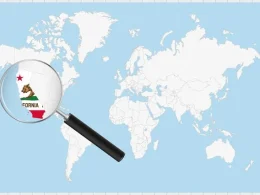The European Commission has rejected calls from automakers to delay the 2025 CO2 reduction targets for cars, asserting that the industry has had ample time to prepare. Automakers are required to reduce average CO2 emissions by 15% by next year, compared to 2021 levels, under EU rules for cars and vans.
Despite concerns from some automakers about lagging electric vehicle (EV) sales, an unofficial industry paper circulated over the weekend proposed a two-year delay to avoid potential billion-euro fines. However, Tim McPhie, the Commission’s spokesperson for climate action, emphasised that the targets, established in 2019 require and enable manufacturers to develop comprehensive compliance strategies. He informed that the targets remain unchanged as “the industry has had quite some time to prepare for this next phase in the transition.”
The industry paper, attributed to Renault and supported by the European carmakers’ association ACEA, warns that non-compliance could result in fines of up to €16 billion, according to French newspaper Le Monde. To meet the 2025 target of 95g CO2 per kilometer, the paper suggests EV market share must increase to 20-22%, while current sales are stagnating below 15%. ACEA did not directly comment on the paper but reiterated concerns about insufficient infrastructure for charging and hydrogen refueling, affordable green energy, and EV incentives.
While some automakers, like Stellantis, back the existing rules, others, including Germany’s car industry association VDA, have called for an accelerated revision of the CO2 regulations. However, environmental group Transport & Environment (T&E) criticised the automakers’ proposal as “cynical and absurd,” pointing to their significant profits over the past two years and ample time for preparation.
T&E also opposed the industry’s legal argument to invoke Article 122 of the Treaty on the Functioning of the EU, which would allow for emergency measures without parliamentary approval. Julia Poliscanova, senior director at T&E, argued that the situation did not justify such a move, dismissing it as a “self-serving stunt.”
Automotive expert Ferdinand Dudenhöffer blamed the sluggish EV uptake on German politics, particularly the sudden removal of electric car subsidies last year. While sympathetic to automakers’ concerns, Dudenhöffer advised against delaying the targets and suggested allowing companies to offset potential fines by exceeding targets in later years.
















